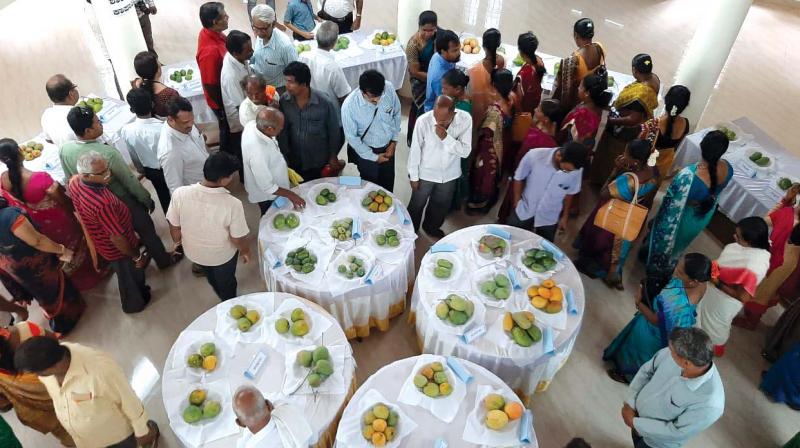British favourite Ishad Mango’s back!
The Ishad Mango fest held on June 6 at Ankola was a first of its kind initiative. It provided a platform to farmers and experts.

Karwar: At a time when the Ishad Mango is fading away from public memory due to the tough competition from other varieties, the Uttara Kannada district administration has taken a major initiative to preserve and promote it.
The Ishad Mango fest held on June 6 at Ankola was a first of its kind initiative. It provided a platform to farmers and experts. Apart from displaying the mango variety and its products, the event also helped farmers obtain information about Ishad mango, its value addition and the future market potential.
The thin skinned fleshy 'Ishad,' mango (also known as Ishadu) is native to Ankola in Uttara Kannada district. A meal of this mango is almost equal to a breakfast due to its rich flesh and very small seed. A few decades ago, the mango could be seen in almost every house, fields, and also on the roadside.
It was so famous that it had drawn the attention of the British colonial rulers. The short shelf life made the British start Oriental Canneries and Industries at Ankola for value addition in 1908, recollects environmentalist Shivnanda Kalave.
The unit started preserving the pulp of the mango and exporting it. "With this the fruit was introduced not only to various cities of India but also found its place in ice creams in Australia, juice in Sri Lanka and also in the plates of Americans," he adds.
The Hichkada group's Vividoddesha Sahakari Sangha led by Pundalika P Prabhu now runs the Oriental Canneries and produces about 12,000 tonnes of pulp every year.
Over the years, due to the advent of various other varieties the production of local Ishad mango fell drastically. Growers too started opting for other varieties.
Newly appointed Deputy Commissioner Harish Kumar who got to know about the unique Mango through media reports has chalked out plans to organise an Ishad Mango fest every year. The first such event was held last week.
"Ishad is a unique verity which attracted even the British. There is a need to preserve and boost this variety in the region. So we will hold a programme every year in Ankola," Harish Kumar told Deccan Chronicle.
"The program will help to promote the variety, introduce it to new markets and also help growers get information on the methods of cultivation," he added.
